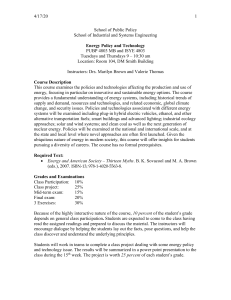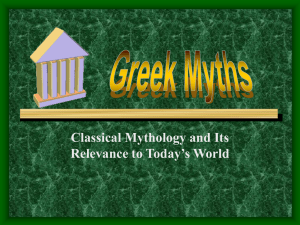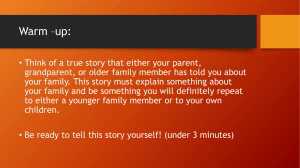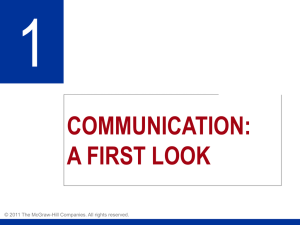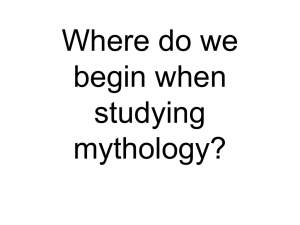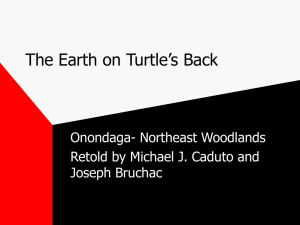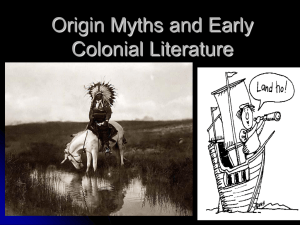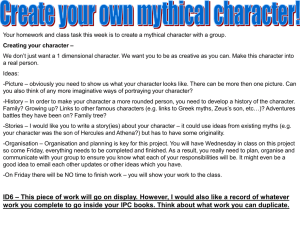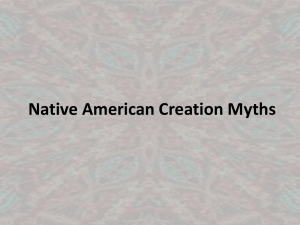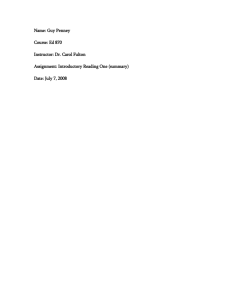From the Compelling Tangle of Energy and American Society
advertisement
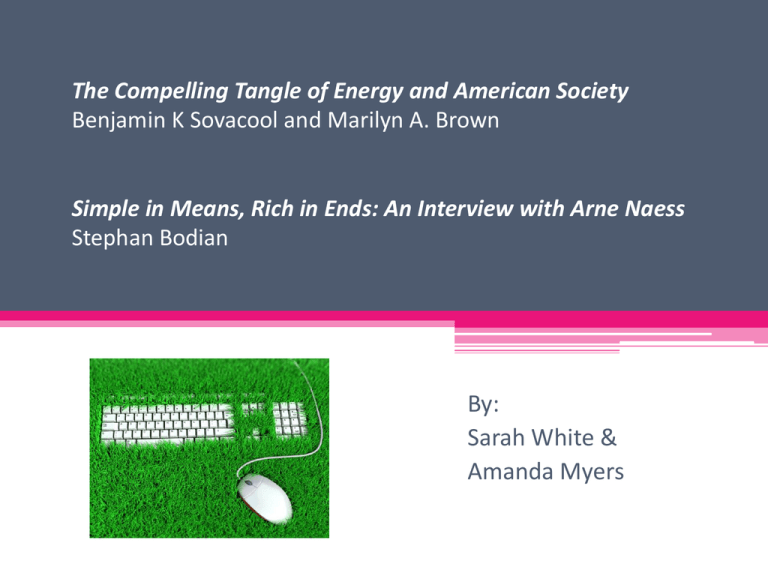
The Compelling Tangle of Energy and American Society Benjamin K Sovacool and Marilyn A. Brown Simple in Means, Rich in Ends: An Interview with Arne Naess Stephan Bodian By: Sarah White & Amanda Myers • What do you see as the basic commodities of life? • “Energy is, according to Nobel Prize winning economist E.F. Schamacher “not just another commodity , but the precondition of all commodities a basic factor equal with air, water, and earth” • Do you agree with the author that energy is equal to air, earth, and water? • “Levi-Strauss emphasizes, is not whether myths exist---they do, regardless of how much a culture has progressed---but what such myths reveal about society.” • Energy and American Society: Thirteen Myths , edited by Benjamin K. Sovacool and Marilyn A. Brown. The book discusses thirteen propositions concerning American culture, energy, the environment, and society ▫ Myth One – Today’s Energy Crisis is “Hype” ▫ Myth Two – The Public is Well Informed About Energy ▫ Myth Nine – Energy Efficiency Improvements have Already Reached their Potential ▫ Myth Twelve – Climate Policy will Bankrupt the U.S. Economy ▫ Myth Thirteen – Developing Countries are not Doing their Part in Responding to Concerns about Climate Change • What do the aforementioned myths say about out society? • When you hear the word Technology, what comes to mind? • “Consequently, in today’s culture most people conceive of technology only as the latest high tech items, such as new and rapidly emerging technologies and systems. Inventions of far larger historical significancepottery, paper, electricity-no longer “count” as technology….” • Where would modern society be if not for inventions of yesteryear? • Arne Naess said, “ I never have had the feeling that nature is something to be dominant or conquered; it is something with which we coexist.” • Do you think that in today’s society we necessarily have to coexist with nature? • Do you think access to nature is a basic human need in today’s society? • “I think that, one hundred and fifty years ago, in government decision making in America and Europe , more information was available in proportion to the amount needed than is available today. Today, we are using thousands of new chemicals, and we don’t know their combined long-range effect.” • What do you think Naess is saying in this quote? • Do you agree or disagree? Works Cited • Bodian, Stephan. “Simple in Means, Rich in Ends: An Interview with Arne Naess.” Human Experience : Who am I? Ed. Alice Burmeister and Kathy Lyon. 6th ed. Littleton, MA: Tapestry, 2009 • Sovacool, K. Benjamin, and Marilyn A. Brown. “From the Compelling Tangle of Energy and American Society.” Human Experience : Who am I? Ed. Alice Burmeister and Kathy Lyon. 6th ed. Littleton, MA: Tapestry, 2009
